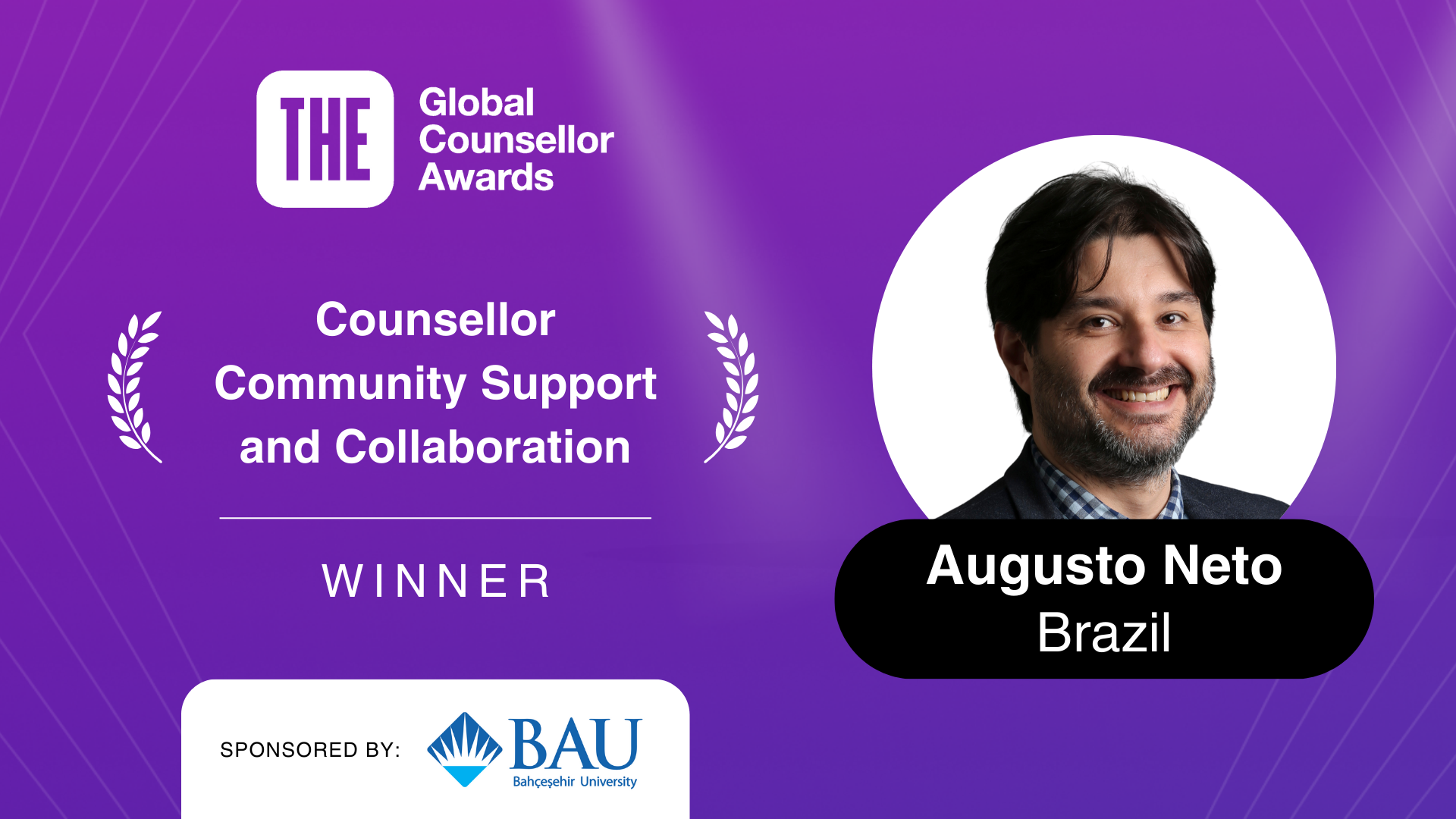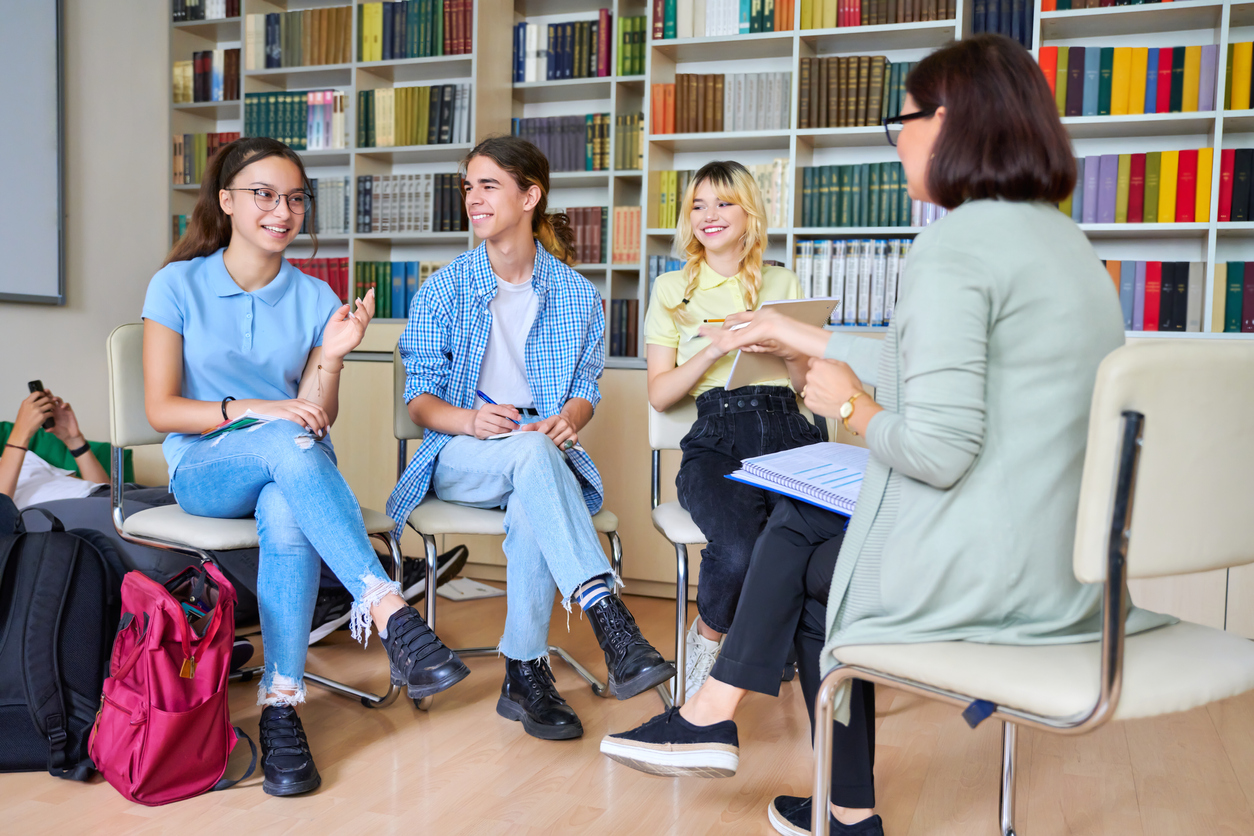Global Counsellor Award winner – Augusto Neto
Augusto Neto won the award for Counsellor Community Support and Collaboration at this year’s inaugural Global Counsellor Awards. Find out more about his career journey and his tips for creating a community

How does it feel to win the Counsellor Community Support and Collaboration Award at the first-ever THE Global Counsellor Awards?
First of all, it was incredibly humbling to have been shortlisted in this category. This was counsellors recognising fellow counsellors for the work done to support the community and advance our profession. I was honoured to be in the company of Eric Laug, Jennifer Tassell and Phillip Wenturine in the category. Winning is a wonderful feeling, of course, but, above all, it’s amazing to see how much counsellors from around the world are willing and are ready to create a collaborative environment within our community.
Tell us a little bit about your career background and how you came to be a school counsellor
I’ve heard the term accidental counsellor many times. When looking back at how I got into counselling, I would say that perhaps I’m an incremental counsellor. If that is a new term I’m coining, I would like full credit from those using it in the future.
Jokes aside, I have been in education most of my professional life. I started my career as a teacher of English as a second or foreign language, depending on the context. At many of the schools I worked, students, mostly teenagers and young adults, would come to me to ask for advice on how to find opportunities to study abroad, apply to universities, or ask me to write a letter of recommendation on their behalf.
The more I helped students, the more students would come to me for help. In my last position before the transition to K-12 education, I started liaising with consulates in São Paulo so that they would send representatives to the language institute to talk to students about study and work opportunities abroad. I didn’t realise it at the time, but I was slowly making incremental steps towards becoming a university guidance counsellor.
Why is it so important to build a community in the counselling profession?
Some counsellors lead a fantastic team of one. Regardless, I believe that no counsellor is an island and that we all feel the need to help and be helped. This is what we find in a community of counsellors.
Never have I seen a group of professionals so ready to come together to support fellow professionals and be open to learning from the lived experiences of one another.
Being part of a community or building one from scratch allows counsellors to tap into the collective wisdom of peers and see beyond their own contexts to become better professionals and better serve their educational communities.
What are the ways in which you have fostered a sense of community and supported your fellow counsellors?
I don’t think I have done anything special to foster a sense of community and support other counsellors. What I have been trying to do quite a lot is to ensure that everyone who reaches out for support will at least have someone they know will try to help.
At St. Paul’s School, we have six core values that guide everything we do: adventure, resilience, aspiration, responsibility, inclusion and kindness, kindness being the most important of all. We know that we are in a privileged position and many universities want to visit to talk to our students.
So, one thing we do, for instance, is to ask admissions reps and recruiters if they would be willing to give workshops at St. Paul’s for counsellors from other schools. This is a win-win, really.
I also feel it’s important to join larger communities and organisations. There are WhatsApp groups for counsellors in São Paulo, Brazil, the Caribbean and Latin America, and many others. IACAC is another example. Those who complete the Times Higher Education Counsellor Accreditation Programme instantly become part of a 3,000-strong community.
More recently, I have written quite a lot of material for THE Counsellor, a resources platform for international school counsellors. The ethos behind THE Counsellor is that it was created for counsellors, by counsellors.
What advice would you give to any counsellors who are feeling isolated in their roles?
I’m not a particularly religious person, but I love going to churches and temples of different denominations when I travel. During our recent trip to the UK for the Global International Schools Forum and Workshop and the Global Counsellor Awards, I walked into St Giles’ church in Oxford.
Admiring the beauty of the 905-year-old church, I saw a Bible open at the altar and leaned over to read the page. It said: “Seek and you shall find”. This is a long story just to say that this is also true of the counsellor community. If a counsellor is feeling isolated in their role, all they have to do is to seek and they will find fellow counsellors they can rely on for support.
What’s the one piece of advice you would give to a counsellor looking to develop their professional network?
Local WhatsApp groups normally lead to inclusion in larger regional and then global communities. Use LinkedIn to your advantage. It is a powerful tool for those looking to grow their connections. Join online forums and presentations. Whenever possible go to counsellor meet-ups in your region. If there isn’t one, organise one yourself. These simple steps will naturally help you grow and develop your professional network.



